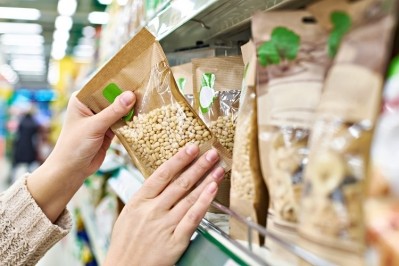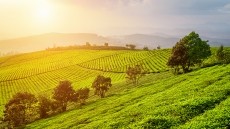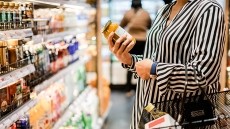Value-adding ‘organic conversion’ label to reduce financial burden for farmers

Demand for organic fruit and vegetables is on the rise. According to the international federation of organic agriculture movement (IFOAM), consumers have more than doubled their consumption of organic over the past 10 years, “but demand is outstripping supply”.
Unfortunately for farmers looking to ‘make the switch’, converting conventional farmland to organic is a cumbersome and expensive process. Farmers are required to go through a two to three-year conversion period before they are able to sell their products as certified organic.
During this transition period, their goods – which are grown according to organic principles – are sold as conventional products, at conventional prices.
While the current Common Agricultural Policy (CAP) gives Member States the possibility to grant farmers payments for conversion to organic farming during this period, IFOAM EU director Eduardo Cuoco told FoodNavigator the level of CAP public support varies from country to country, and even from region to region.
“In some countries, France, for example, payments are very late because the rate of conversions has been higher than expected, and this is a huge problem for many farmers,” he said. And while the CAP also allows Member States to grant payments for maintenance of organic farming once converted, Cuoco suggested these are insufficient.
“The overall payments to organic conversion and maintenance only amount to 1.5% of the CAP budget, whereas organic land has now reached 6.7% of the EU land area,” he told this publication.
French cooperative group D’Aucy, based in the northwest of France, is taking the matter into its own hands. This week, the co-op launched two initiatives designed to provide better support to farmers as they move towards more sustainable farming practices.
Promoting sustainable agriculture
D’Aucy counts 9,000 farmers among its members, 900 of which produce vegetables in Brittany. The group sells foodstuffs across Europe in three formats: canned vegetables, canned ready meals, and frozen vegetables.
D’Aucy prides itself on supporting co-op members adopt more sustainable agricultural practices. Its motto ‘produce better to live better’ informs much of what the brand does, according to the group. In 2011, for example, D’Aucy began testing alternative solutions to pesticides on pilot farms. The following year, the group sowed its first fields of own-label organic vegetables.
“At a time when the issues of agriculture and food are coming together, the relevance of our model is more relevant than ever. It allows us to create a direct link between farmers and consumers,” said Nicolas Facon, executive vice president of D’Aucy Group’s vegetable division, France.
“Our goal is to…make everyone a participant in the ongoing transition [towards sustainable agriculture],” he continued.
As part of D’Aucy’s most recent commitment to the environmentally conscious agri sector, the group has developed a ‘D’Aucy Chart’. The chart sets “very concrete objectives” for sustainable agricultural practices – 44 in total. These requirements come under eight categories: biodiversity, protection and nutrition of crops, water, earth, waste, geology, and transparency.
According to D’Aucy, these objectives are based on recognised third-party certification requirements. The chart will help guide farmers as they transition, in their own time, towards organic or high environment value (HVE) certification.
HVE certification is particularly strict, particularly in terms of promoting biodiversity. D’Aucy has developed a plan of action for its 30-odd farmers aspiring to obtain HVE status. “For 2020, we aim to have 50% of our D’Aucy vegetable producers officially certified by an independent and recognised body for their sustainable agricultural practises,” said Facon.
Shoppers to ‘co-create’ organic vegetables
D’Aucy’s initiative also offers consumers the opportunity to ‘co-create’ the brand’s first range of vegetables undergoing organic conversion. The brand has developed an ‘organic conversion’ label for its products, with shoppers able to pay a supplement fee per product to “concretely help producers in their transition”.
A new web platform, titled D’Aucy C’est Vous Aussi (D’Aucy is also you), has launched alongside the initiative to help consumers contribute to the programme. On the platform, each person can select which vegetable product in ‘organic conversion’ they would like to purchase, in what format, and where the product is sold. The consumer can also define how much extra they are happy to contribute to support farmers during the time it takes to convert to organic.
An 800 g can of green beans, for example, sold in a chain supermarket retailer, will sell for €1.69 with a €0.12 supplement fee to help converting farmers.
The label adds value to these vegetable product which, until now, have been displayed and sold in retailers as conventional products, but grown according to organic principles.
“With this initiative, we are allowing consumers to enter into the world of our cooperative, as they learn [about converting to organic] and offer their opinion – all the while showing us their support,” said farmer and cooperative member Kevin Thomazo.
“It is an unprecedented and virtuous step that will make those who participate proud, and that will help us farmers transition to organic.”
Responding to a growing need
D’Aucy is not the only brand to have sought additional, non-governmental support for farmers transitioning to sustainable agricultural methods.
The MiiMOSA Transition project in France has crowdfunded for farmers working to adopt more sustainable practices, attracting backing from supermarket retailer Carrefour and dairy giant Danone.
In response to Carrefour’s pledge to the platform, MiiMOSA Founder Florian Breton said the collaboration is “evidence of the paradigm shift that we are seeing in funding for agriculture and food.
“By joining forces with MiiMOSA Transition, Carrefour has decided to provide its suppliers with an innovative, nationwide and inclusive funding solution that involves everybody.”
Elsewhere, a Certified Transitional programme in the US is providing certification to recognise and encourage growers to transition their land from conventional to organic farming practices. According to Quality Insurance International (QAI), which together with natural food manufacturer Kashi launched the protocol, large farms can shoulder the cost of transitioning to organic, yet “medium-sized farms often cannot afford this upfront investment and this transitional period becomes a barrier to becoming organic”.
Products made using at least 51% certified transitional content are allowed to use the Certified Transitional logo on their packaging, which QAI says helps to raise awareness with consumers, provide more choices in the marketplace, and allow premium pricing to be distributed down the supply chain to farms in transition.





























